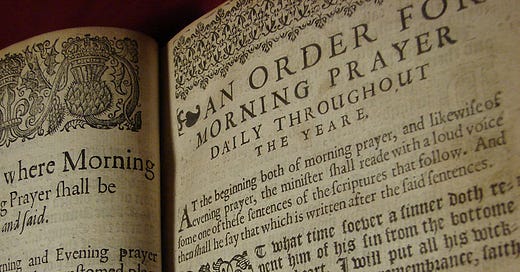When Jesus teaches his disciples about prayer in Matthew 6:5-15 (notably, linked to giving alms and to fasting – all three practices being obligatory in Hebrew piety and, consequently, in that of his followers, including us), he warns them not to do so after the manner of “the hypocrites” within his own Judaic context (ὑποκριταί — “playactors”), meaning those who make a show of their devotions. Likewise, they are not to imitate “the gentiles” either, whose idea of prayer is incantatory and intended to “get results” from the gods they invoke: “And when praying do not babble repetitious phrases as the gentiles do; for they imagine that they will be listened to by virtue of their prolixity” (Προσευχόμενοι δὲ μὴ βατταλογήσητε ὥσπερ οἱ ἐθνικοί, δοκοῦσιν γὰρ ὅτι ἐν τῇ πολυλογίᾳ αὐτῶν εἰσακουσθήσονται; Matt. 6:7). In contrast to both hypocrites and babblers, then, is what we may call “the prayer of the heart”: “But, when you pray, enter into your private room and, having closed your door, pray to your Father who is in secret” (σὺ δὲ ὅταν προσεύχῃ, εἴσελθε εἰς τὸ ταμεῖόν σου καὶ κλείσας τὴν θύραν σου πρόσευξαι τῷ πατρί σου τῷ ἐν τῷ κρυπτῷ; Matt. 6:6a).
Keep reading with a 7-day free trial
Subscribe to The Pragmatic Mystic to keep reading this post and get 7 days of free access to the full post archives.



